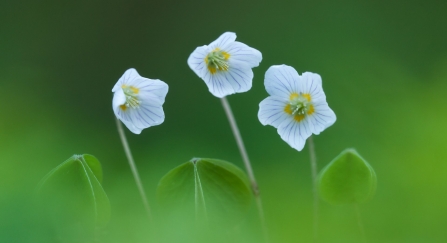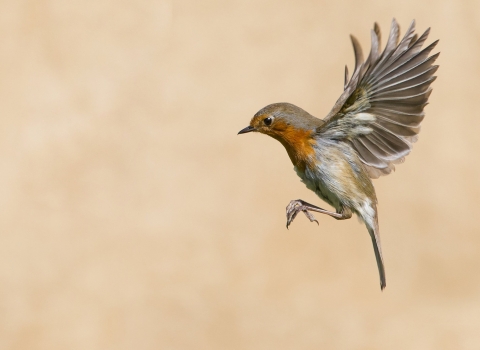As wildlife wakes up from winter, there is plenty of new spring activity. Birds are building nests, spring flowers are blooming in all their glory and bumble bees and butterflies are taking advantage of the early nectar sources.
Our meadow management team – the goats, sheep and cattle - are hard at work already. We've had a number of early arrivals in the form of new kids and lambing will start soon.



